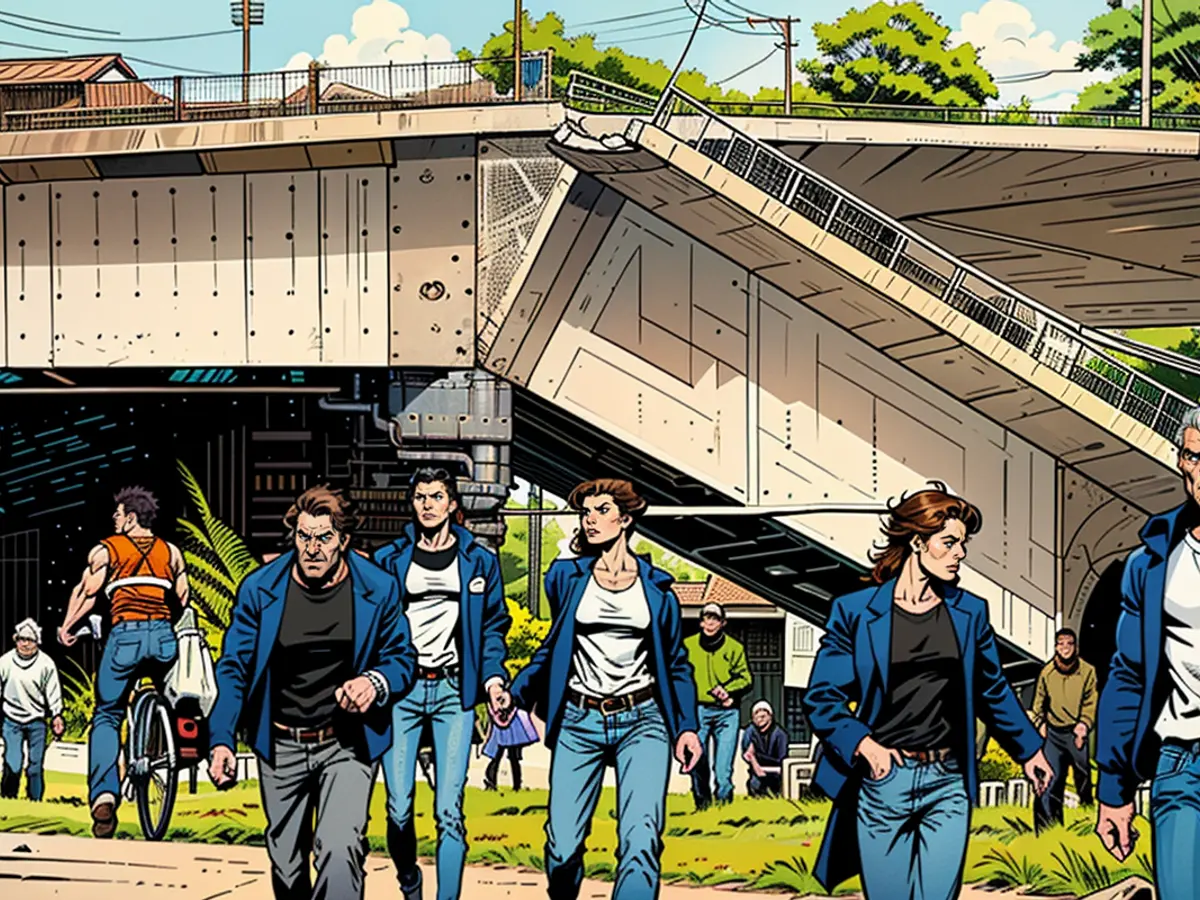The demise of the Carola Bridge underscores the state of decaying public structures.
Federal and local politicians have ignored the upkeep of infrastructure for quite some time, experts caution. This negligence increases the likelihood of incidents like the Carol Bridge collapse in Dresden. Funding is necessary, but Federal Transport Minister Wissing downplays the issue, shifting blame to others.
The partial collapse of the Dresden Carol Bridge has sparked concerns about infrastructure in Germany. Funds are being demanded. In Dresden, it's crucial to figure out how to rebuild this significant transportation route, as the city's financial situation is currently strained.
Bridge expert Martin Mertens criticizes the poor condition of many large bridges in Germany. "In essence, one can say that all bridges built before 1980 are our top health concerns," the professor from the University of Bochum told the German Press Agency (dpa). Regrettably, the majority of them existed due to the post-war construction boom. Politics must act. "Dresden makes it abundantly clear: It's five minutes to midnight."
The German Association of Towns and Municipalities is advocating for an "infrastructure investment surge" because of the poor state of bridges. Municipalities lack the financial resources for the immediate repairs, stated André Berghegger, managing director of the association, to the Funke media group. "The collapse of the Carol Bridge in Dresden powerfully demonstrates that Germany is living on borrowed time."
Carol Bridge "a sad representation of German infrastructure"
Wolfgang Schubert-Raab, president of the Central Association of the German Construction Industry, also believed investments were urgently required, according to a statement. He described the collapse in Dresden as "a sad embodiment of German infrastructure" that underscores the urgent need for action.
The main association of the German construction industry is urging Germany's bridge renovation to be made a top priority after the partial collapse. "The incident in Dresden clearly shows how fragile our transportation infrastructure is and the essential role our bridges play," explained Tim-Oliver Müller, managing director of the association, to the German Press Agency (dpa). The emphasis should be on these essential arteries. This applies not only to Dresden but also to other situations. "This is a political responsibility and a social duty."
In the Bundestag budget debate, Federal Transport Minister Volker Wissing highlighted that over nine billion euros would be allocated for investments in federal highways and bridges in the coming year. Regarding the Carol Bridge collapse in Dresden, he emphasized that it was under municipal responsibility and had no bearing on the federal budget. "However, it's evident that if infrastructure isn't diligently invested in, such situations can be dangerous."
No evidence of external interference
In the early hours of Thursday, an approximately 100-meter-long section of the Carol Bridge, which had tram tracks, a footpath, and a cycle path, collapsed into the Elbe. No one was harmed. The remaining bridge section is also deemed to be at risk of collapsing. The cause was initially unclear, but the police ruled out external influences. Preliminary evidence suggests that corrosion played a significant role in the collapse, stated Steffen Marx, professor at the Institute of Structural Engineering at TU Dresden.
Current efforts are centered on restoring a safe traffic condition, according to Marx. Proceedings must be cautious, said Michael Klahre, spokesperson for the fire department. "Because every person who approaches the bridge, stays under it, or on it, risks their life."
The collapsed section should be restored by 2025.
The bridge - a crucial transportation artery in Dresden's city center - has been identified as a renovation priority for some time. In recent years, sections of the bridge have already been renovated for automobile traffic, and the renewal of the now-collapsed bridge section was planned for this year.
The Green Party city council faction warned of significant impacts on Dresden's traffic "for many months, if not years." Agnes Scharnetzky, faction chairwoman, also expressed concern about the financial strain that this disaster poses for the state capital. "It's clear that the city does not have the funds alone." Scharnetzky urged discussions with the federal and state governments.
Despite the Federal Transport Minister's downplaying of the issue, the unfortunate Carol Bridge collapse serves as a stark reminder of Germany's neglected infrastructure. The incident highlights the urgency for substantial investments in bridge renovation, not just in Dresden but across the country.






